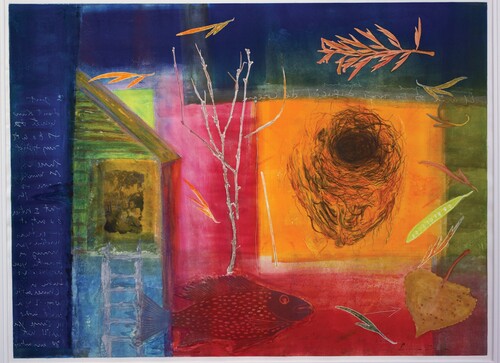Review 107, guest edited by Will H. Corral, follows in the line of two retrospective issues that collectively featured essays published in the journal from its early years to the present: Review 100 (Review’s Twentieth-Century Essays) covered the period 1968 through 2000; Review 101 (Review’s Twenty-First Century Essays), from 2001 to 2019. This special issue presents contemporary nonfiction by subsequent generations of Spanish American writers from the Caribbean, Mexico, Central America, the Greater Andean region, and the Southern Cone.
Corral’s introduction emphasizes the dialogues the contributing authors have with other texts in previous issues of Review as well as with other literary traditions; he also considers the nature of the genre of nonfiction and how lines are often blurred between narrative and essay. The articles by leading scholars that follow the introduction address topics including the state of the essay in Mexico and Central America, the Caribbean, and the Andean countries, as well as that of the crónica in Latin American literature. The creative texts comprise essays as well as an interview on a broad array of topics by prominent and emerging authors throughout Spanish America: some explore themes evident in their own or other works, such as the creative process and the nature of the novel; the Boom and its aftermath; the personal devastation of Argentina’s “Dirty War”; the Afro-Latinx experience in Puerto Rico; and indoctrinated writing in and about Latin American literature; others directly address specific authors and/or works ranging from the Gilgamesh epic, Jane Austen, Emily Dickinson, José Gorostiza, Herman Melville, Malcolm Lowry, Cormac McCarthy, and Antonio Benítez Rojo’s The Repeating Island. What’s emphasized in this compilation is the notion of literature as a conversation, among texts and between author and reader, as well as among languages and various literary traditions. As a whole, the nonfiction showcased in Review 107 underscores the truly international character of Latin American literature and its place in the ever-growing body of World Literature.
In addition to the main contents, we’re pleased to publish two special Features—Elizabeth Lowe’s moving memorial piece on the late Brazilian novelist and Review advisory board member Nélida Piñon; and excerpts in translation from Mexican playwright Sergio López Vigueras’s monologue Tartarus. The issue also includes reviews of titles in translation by narrative authors and poets João Almino, Homero Aridjis, Amanda Berenguer, Sergio Missana, Angelina Muñiz-Huberman, and Verónica Zondek, as well as of the recent Gego exhibition at the Guggenheim Museum in New York.
My thanks to all the writers, scholars, and translators, as well as our cover-artist, Emma Luna, whose outstanding work appears in these pages. Thanks as well to our copy editor, Jason Weiss, and to our editorial assistant Daimys García for all their commitment. My continuing gratitude to Review’s editorial advisory board; to The City College of New York, particularly the Division of Humanities and Arts; and to Routledge/Taylor and Francis, for their ongoing support.
Finally, special thanks to Will Corral for his broad vision and forward-looking selection of authors and texts for this issue. No stranger to Review (he worked as an assistant editor to the journal in earlier years and has followed its trajectory as both contributor and reader throughout the journal’s long history to date), he has been an ideal guest editor for showcasing writing by the most current generations of Latin American authors working in the evolving genre of nonfiction. I invite our readers to dive into this exciting issue of Review.
About the cover artist:
Emma Luna is a California-based Dominican artist known for her work in ceramic sculpture and monotype prints. Her work is exhibited widely in various commercial, public, and academic venues in the United States. She was the recipient of an Artist’s Grant from the Pollock-Krasner Foundation and a Fulbright Fellowship. The print selected, El nido (The Nest), is a unique, single impression produced by painting oil inks onto a plate, texturing materials such as cheesecloth, woodcuts, and etchings. Part of a continuing series entitled Recuerdos (Memories), it is composed of autobiographical cultural references to Luna’s Caribbean upbringing, photographic images taken by her or her family, and organic found objects collected in Latin America and in the U.S.
Note: We mourn the death of our colleague and friend Edith Grossman—translator, author, and intellectual par excellence, not to mention her dedication as a Distinguished editorial advisory board member of Review and a steadfast supporter of the journal since its early years. Review was, in fact, the venue where she published her first translation: author Macedonio Fernández’s text “The Surgery of Psychic Removal” (Review 10, 1973). We will be featuring a tribute to our dear Edie in the next issue of Review.
We also note the passing of world-renowned Colombian artist Fernando Botero and celebrate his signficant contribution to international culture.


